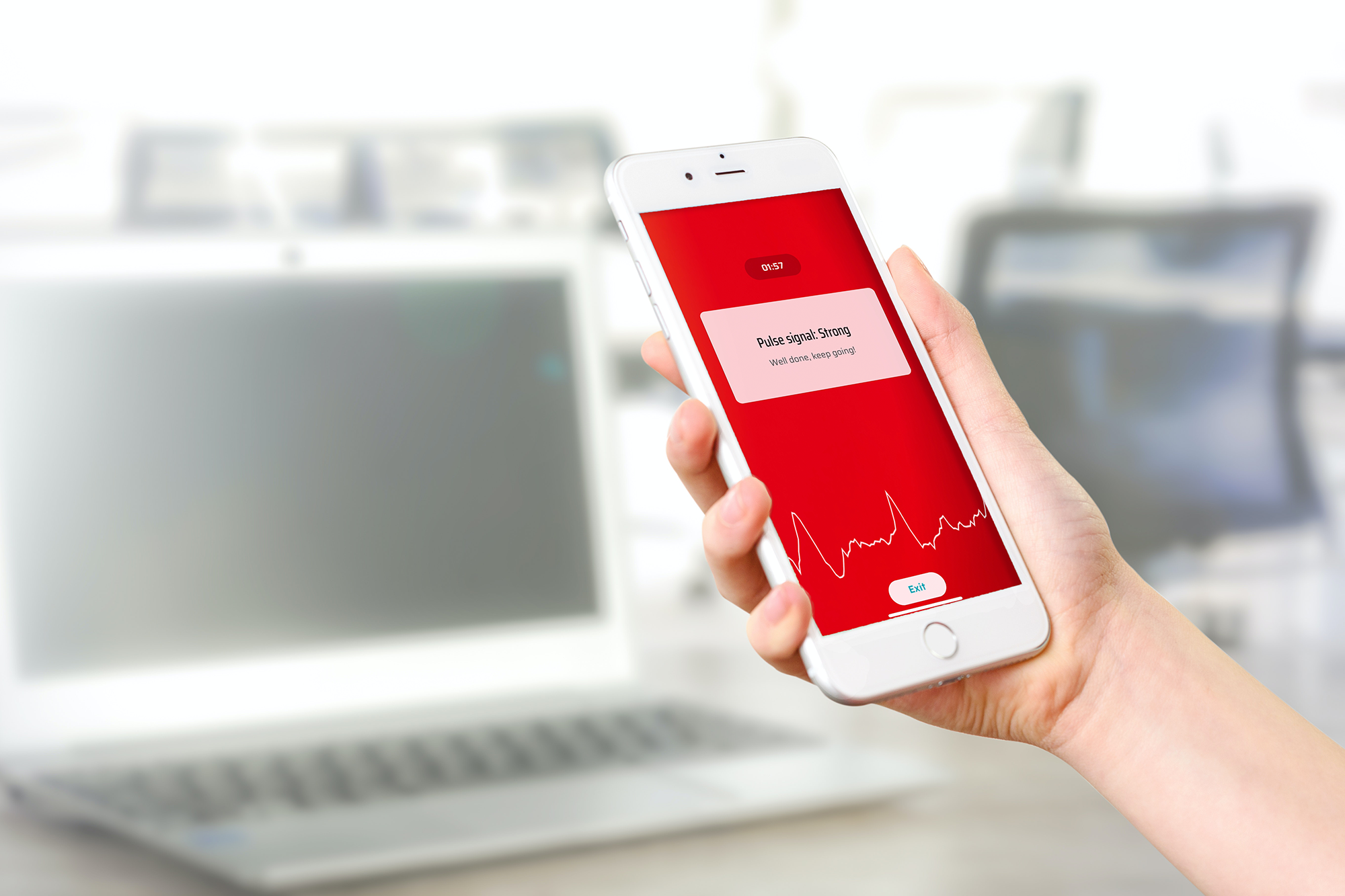By Andy Markham on Tue, Oct 5, 2021
The autonomic nervous system controls essential, primal functions--our heartbeat, our breathing, and our digestion. It is made up of two parts: the sympathetic nervous system, better known as our fight-or-flight response mechanism, and the parasympathetic nervous system, which is our rest-and-digest relaxation response.
The brain signals the autonomic nervous system to relax or stimulate different functions based on what’s happening around us. It activates our relaxation response when we take a casual stroll on break at work but will kick into fight-flight mode if we are burning the midnight oil to meet a last-minute deadline.
In an ideal world, we’re able to maintain a constant balance between stress and relaxation as the brain processes all this information. How well we strike this balance can be reflected in our heart rate variability, or HRV.
HRV refers to the variation in time between heartbeats, and it reveals how quickly our heart rate adjusts to the stimuli around us. If we have a high HRV, it means our system has the resilience and adaptability to easily ramp up or ramp down as needed. On the flip side, if we’re in a high pressure situation and unable to quickly recover from the spike in stress, this shows a lack of flexibility that indicates low HRV.
Stress can hamper our productivity. It can also affect our mood, which can sour our interactions with coworkers and hinder our collaborative efforts. The more we know about how we respond to stress, the more effectively we can manage it.
That’s why we’ve added an HRV measurement feature to our Resonant Breathing exercise in the Total Brain mobile app. Users will be able to see how a relaxation activity as simple as breathing immediately lowers stress and raises HRV, training us to respond in healthier ways moving forward.
Take a breather
Deep breathing has always been one of the easiest ways to calm the mind. Research shows that by slowing our breathing to six breaths per minute, we can create a symbiosis between our heart rate, blood pressure and respiration referred to as cardiorespiratory coupling. This, in turn, triggers a relaxation response in the body.
Based on this science, Total Brain’s Resonant Breathing exercise is designed to help users engage this system of coupling and suppress the fight-or-flight response in just a few minutes, which makes it the ideal tool for anyone who is trying to manage stress in-the-moment.
It guides users through a breathing exercise guided by visual and auditory cues. By matching their breathing to the pace of the app, users achieve an optimal breath rate that promotes calm, relaxation and presence. HRV measurement further maximizes the stress management benefits by demonstrating the immediate impacts of this simple activity.
Measuring HRV During Resonant Breathing
To get started, open up the Resonant Breathing tool within Total Brain on your smartphone. At the bottom of your screen, you’ll see “Measure [Calm]” toggled on by default. This is the setting that indicates your HRV measurements will be taken.

After you choose your preferred visual, auditory and time duration settings for your breathing session, follow the prompts to place your finger over your phone camera to check your current HRV and record a starting stress level. You’ll then be instructed to keep your finger on the camera as the countdown to the Resonant Breathing exercise begins.

As you breathe through the duration of the session, your HRV will be measured a second time. The app will then rank your stress in one of four levels — relaxed, composed, tense, or strained — based on your readings. The comparison between your two HRV measurements gives you immediate feedback of how the activity affected your stress levels.
Paving the way to healthy stress management
Monitoring HRV can teach us a lot about the health of our mind-body connection, and taking regular HRV readings empowers you to better understand how your body responds to stress. You get immediate feedback of how different activities influence the way you feel and how well you bounce back from stressors. With this knowledge, you can develop healthier habits and better methods of stress management.
If you are an HR or benefits professional and want to see how Total Brain’s in-app HRV tool can help your employees better understand and manage their stress so they can perform at their best, schedule a meeting with us today. If you are a mental health professional and want to use Total Brain to monitor your patients’ mental health and complement traditional treatment with digital self-care tools like this one, book a personalized demo.




comments